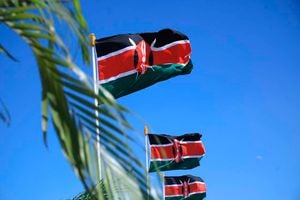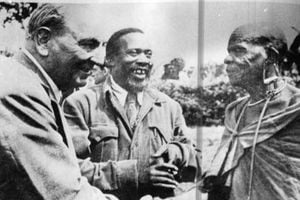
Many folks, including politicians, traffic in sorcery, witchcraft, and so-called black magic.
Many politicians – and other Kenyans – traffic in the occult. This is the belief and practice in mystical, supernatural powers, or mythical phenomena to do either good, or bad. But the realm of the paranormal – the universe outside empirical knowledge which involves “things” that can’t be explained by scientific laws of knowledge – involves not only the occult but also religion.
It’s phenomena about the “unknown unknowns” that humans want to believe are “known knowns.” In reality, the supernatural encompasses the limits of human knowledge and the concoction of phenomena to account for the lacunae of knowledge.
It’s how humans explain away their stupidity and ignorance. Kamuti, the Kamba version of the occult, is perhaps Kenya’s most famous example.
Kamuti and other versions of the occult, including religion, aren’t difficult to explain. There’s much humans don’t know, or can’t explain. This includes many natural occurrences such as death, illness, and until recently, climate change, among many others.
More stubborn “unknowns” include the origin of the universe, or even life itself. I remember as a child wondering how far the “universe” or the blue sky stretched. Even if the sky extended to the farthest point possible, I couldn’t fathom what was beyond the endpoint and what came after it.
This issue always gave me a headache. I would often give up. Gabriel Wambua, my elder brother, had a ready answer – God. I shouldn’t worry because God knew everything.
Belief, like conscience, is considered sacred in most modern constitutional and international legal instruments such as the International Covenant on Civil and Political Rights, to which Kenya is a party, and the Universal Declaration of Human Rights, two of the most iconic international texts.
We construct belief and religion as innate to being human. For that reason, we regard most beliefs – religious and irreligious – as inviolable. That’s why generally we don’t criminalise belief unless it manifestly runs afoul of a basic legal or civilisational norm.
For example, belief that twins are evil itself can’t be criminalised, or punished. But belief that twins are evil that is taken further by action, planning, conspiracy, or deed to harm twins would attract criminal liability.
Beliefs are just that – opinions, and everyone has one. If Kioko believes a snake dropped from the naked blue sky in Mwingi and fell into his car so be it. Or Wambui believes that a djinn lifted her bed off the floor, suspended her in midair, and tried to molest her at night at her house in Banana, Kiambu — although her partner was asleep next to her — there’s nothing we can do about it.
It’s all hogwash but to her it was “real.” She’s obviously in some hallucinatory state. If her condition becomes severe, then we can refer her to psychiatrists for anti-psychotic therapies. Disabusing one of paranormal phenomena isn’t easy.
Similarly, if someone believes a man called Jesus was the son of God and that he arose from the dead, or in similar Islamic belief, we should let them hold those beliefs no matter our belief, or intellectual proclivities, about the religion. That doesn’t mean we should accept the beliefs of others and adopt them as our own. Nor does it mean there is something wrong with our interrogating those beliefs.
We have brains, and the purpose of possessing a brain is to use it to think, critique, assimilate, or reject an idea or concept. We don’t want to impose our beliefs on others, or allow them to impose theirs on us.
Belief and conscience play central roles in civilisation. They can be used to mobilise populations for the greater societal good, to make citizens more submissive, or to mislead them. We know of the famous quotation by Karl Marx that religion is “the opiate of the people.”
Or the Biblical saying that citizens should “render unto Caesar the things that are Caesar’s, and unto God the things that are God’s.” This is the political and social utility of belief.
My point is that belief may be based in reality, or not. It’s real in the sense that people who hold that belief think so whether it can be actualised, or not. It’s like beauty being in the eye of the beholder.
Many folks, including politicians, traffic in sorcery, witchcraft, and so-called black magic. Some are meant to harm their opponents, protect themselves from “evil-doers,” put others in a trance so as to exploit them, or put themselves in a position to reap prosperity and success.
Like Kinjeketile Ngwale, who promised his people that the bullets of German colonialists would turn into water, believers of the occult – in Mwingi, or elsewhere – aren’t better off.
They remain poor, marginalised, and backward in spite of believing in and practicing witchcraft. Politicians still lose elections in spite of it. Kamuti remains futile and impotent, no matter the belief.
- Makau Mutua is SUNY Distinguished Professor and Margaret W. Wong Professor at Buffalo Law School, The State University of New York. @makaumutua.










